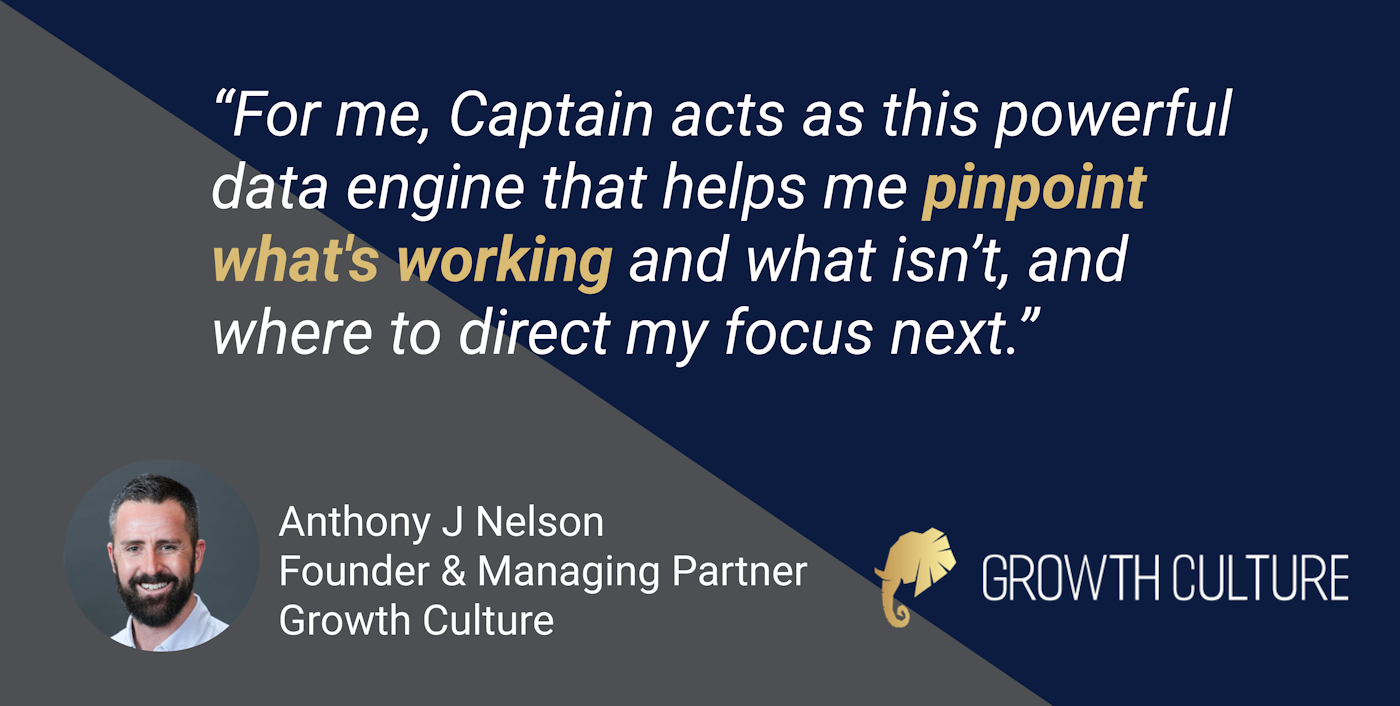7 AI Marketing Trends to Watch in 2024
For the Chief Marketing Officers and Marketing Executives who are at the helm of steering their brands into the future, understanding and adopting the latest technological advancements is not just an advantage—it's a necessity. This article is crafted with the express purpose of guiding you, the visionaries and decision-makers in the marketing realm, through the transformative landscape of AI marketing trends in 2024. Grounded in data-driven insights, we delve into the trends that are not only reshaping the industry but also providing a competitive edge to those who are prepared to harness them.
The Shift to First-Party Data and Privacy Compliance
In the world of marketing, consumer data is akin to currency. However, the manner in which this data is collected and utilized is undergoing a significant transformation. As consumer concerns about data misuse intensify, the industry's focus is pivoting towards first-party data and stringent privacy compliance. This shift marks a departure from the reliance on third-party cookies, compelling marketers to develop more transparent and trust-based relationships with their audience. The strategic collection and utilization of first-party data will not only ensure compliance with privacy laws but will also afford a richer, more accurate understanding of consumer behavior.
Embracing Self-Service Ad Platforms
The evolution of ad platforms is another trend demanding attention. The rise of self-service ad platforms signifies a move towards greater autonomy, enabling marketers to craft and deploy campaigns with precision, free from the constraints of major tech platforms. This trend is fueled by the dual forces of privacy changes and a growing desire for independence. By embracing these platforms, you can exert greater control over your campaigns and pivot swiftly in response to data insights, ensuring that your marketing efforts are both nimble and effective.
Enhancing Content Marketing with AI
Content is at the core of marketing, and AI's integration is poised to amplify its impact significantly. Leveraging AI in content marketing is expected to not only heighten personalization but also ramp up efficiency, transforming strategies in ways previously unimagined. Imagine content that adapts in real-time to the engagement patterns of your audience, or marketing materials that evolve based on predictive analytics. The integration of AI into content creation and distribution pipelines will enable your brand to deliver more targeted, relevant, and engaging content, channeling your narrative with unprecedented precision.
Leveraging GenAI for Search and Personalization
The advent of generative AI is set to turn the world of search on its head. As we move into 2024, the use of generative AI is anticipated to not only enhance search capabilities but also to enable more immersive and personalized marketing experiences. This sophisticated technology can tailor content and recommendations in real-time, fostering a deeper connection with your audience. By integrating GenAI, you can transcend traditional marketing boundaries, creating experiences that are not just compelling but also ethically aligned with consumer expectations.
AI Market Growth and Revenue Opportunities
The financial implications of AI in marketing are staggering. By 2028, the global market revenue for AI in marketing is projected to reach $107 billion. This exponential growth underscores the profound impact that AI is having—and will continue to have—on the marketing industry. For CMOs and marketing executives, this translates to a myriad of opportunities to leverage AI for revenue generation, customer insights, and strategic decision-making. The potential to drive business growth through AI is immense, and those at the forefront of this wave will reap the most significant rewards.
In the next sections, we will continue to explore the remaining AI marketing trends that are shaping the future and providing a competitive advantage in the dynamic world of marketing. As we delve deeper into the AI-driven marketing landscape of 2024, it becomes increasingly clear that the harmonization of multiple data inputs through Multimodal AI will set the stage for innovative marketing applications. Multimodal AI, capable of processing and understanding text, images, and voice simultaneously, is not a mere incremental advancement—it's a quantum leap. For marketers, this means deploying campaigns that can interact with consumers in a more holistic and human-like manner. The implications for customer service, product discovery, and interactive advertising are profound, promising a future where AI can engage with consumers across multiple sensory dimensions to deliver a seamless and intuitive experience.
Consumer Marketing Fatigue
This future is not without its challenges. As marketing strategies become more reliant on AI, there is the risk of consumer marketing fatigue—a saturation point where consumers grow weary of constant targeting and algorithm-driven content. To navigate this, it is crucial for marketers to craft campaigns that are not only data-driven but also emotionally resonant. Establishing deeper connections and creating memorable moments can differentiate your brand in a crowded marketplace. AI must be wielded not just as a tool for efficiency, but as a means to empathize and engage with your audience on a more personal level.
AI Commoditization
With the widespread adoption of AI and machine learning, a new challenge emerges: the commoditization of these technologies. As AI tools become more accessible and ubiquitous, the onus is on marketers to differentiate their offerings. The key lies in delivering personalized, innovative, and engaging content and experiences that resonate with your target audience. This requires a blend of creative thinking and strategic use of AI, crafting campaigns that are not only smart but also have a heart.
Robotics Hardware/Software De-coupling
One of the more intriguing trends on the horizon is the de-coupling of robotics hardware and software. As these two facets of robotics become more independent, AI applications in marketing are set to expand. The separation allows for greater flexibility and innovation, enabling marketers to tailor software solutions to specific needs without being constrained by hardware limitations. This trend hints at a future where customer interactions and marketing automation may be conducted through bespoke robotics solutions, offering a glimpse into the next frontier of consumer engagement.
Wrapping it up
In conclusion, as a CMO, embracing these AI marketing trends is imperative for staying competitive in an increasingly AI-centric world. By leveraging these sophisticated tools, you can not only streamline your operations but also deepen your connection with your audience, delivering marketing that is not just effective but also meaningful. The future of marketing is here, and it's powered by AI. Are you ready to lead the charge?




